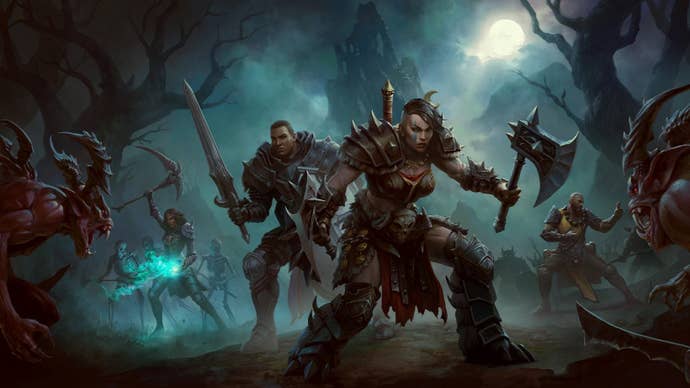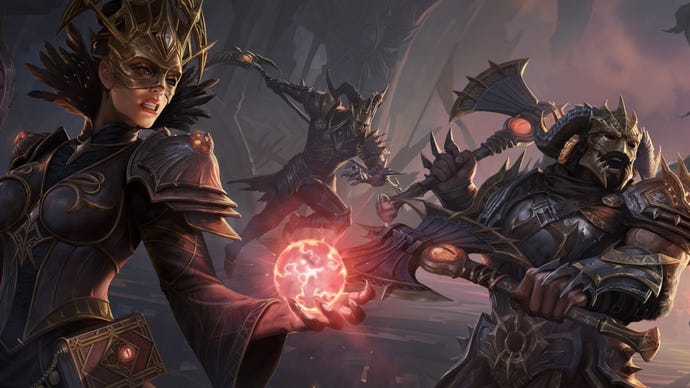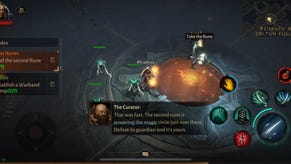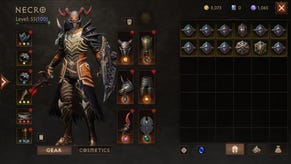Diablo Immortal combat rating and stats explained
Time to crunch some numbers
Diablo Immortal’s combat rating is just one of the many rather vague stats you come to grips with in the game. While stats such as potency and armor are important for your everyday encounters, combat rating is the one you need to focus on the most once you reach the endgame. Along with determining whether you can take part in certain activities, it's vital for dealing with the more powerful enemies you encounter.
What is combat rating in Diablo Immortal?
Combat rating is essentially the metric that tells you whether you can handle a certain challenge, and you run into some barriers later in the game where you need a much higher combat rating to complete certain raids and other tasks. It also affects how much damage you deal, so if you run up against enemies with higher combat ratings, don’t expect to make much of a dent in them.
You can check your combat rating by heading to the character menu and choosing the “Attributes” option. Choose “More Attributes” after that, and you’ll see your combat rating at the top of the list.
How to raise combat rating in Diablo Immortal
Raising combat rating isn’t quite so simple and requires a fair bit of grinding. Diablo Immortal determines your combat rating by mashing together your equipped gems, the rarity of your equipment, and your gear score, along with the Helliquary’s ranking.
The easiest way to raise your combat rating is, in theory, finding better equipment, though the further you get into the game, the more difficult that becomes. Legendary Gems are an important part of this process, so make sure to hunt some of those while you’re doing your usual activities. We've got a handy set of tips for finding Legendary Gems as well.
Upgrading the Helliquary is a grind of its own and requires you to farm Scoria and Demonic Remains. It offers one of the biggest combat rating boosts in the game, though.

What do Diablo Immortal’s stats mean?
Diablo Immortal divides its stats into primary attributes, secondary attributes, and additional attributes. Here’s what they all mean.
Primary attributes
Intelligence: Tied to magic, increases Necromancer and Wizard damage Strength: Increases physical damage dealt, primarily for Barbarian, Monk, Crusader, and Demon Hunter Fortitude: Increases both armor and armor penetration Willpower: Increases resistance and potency Vitality: Increases HP
Secondary attributes (excluding combat rating)
- Armor Penetration: Increases critical hit damage and deals higher damage to enemies
- Armor: Decreases damage taken and increases the chance of blocking attacks
- Potency: Determines how long status ailments and debuffs affect enemies
- Resistance: Determines how long status ailments and debuffs affect you
Additional attributes
These are tied to the equipment you wear and are all fairly straightforward. For example, attack speed increases your attack speed, accuracy rating affects how accurate you are, and so on.
If you're looking for ways to try out your newly raised combat rating in Diablo Immortal, test your metal in the Cycle of Strife by joining the Shadows or Immortals for some of the game's most grueling multiplayer activities.









